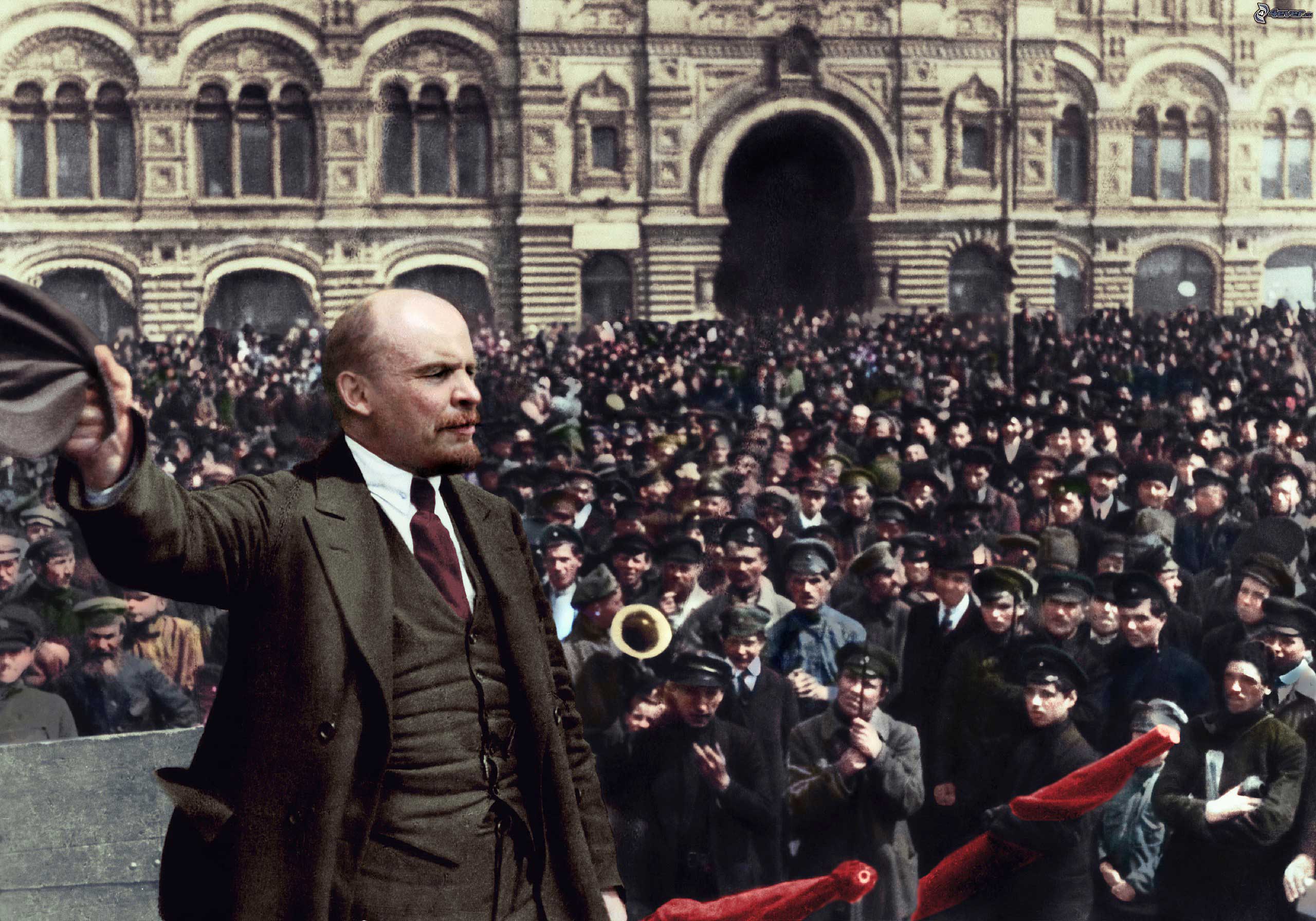
The view of Marxism-Leninism and the law of increasing role of the masses in history
The progressive development of society is inseparable from the creative activities of the masses. Therefore, Karl Marx and Friedrich Engels affirmed: “ History does nothing , it “has no infinite richness”, it “fights no battles ”! It is not “history”, but man , real man, living man, who does all that, has all that and fights for all that. “History” is not a particular personality that uses man as a means to achieve his goals. History is nothing more than the activity of man pursuing his own goals” (1) . Not stopping at emphasizing and scientifically proving the decisive role of the masses in history, the founders of Marxism-Leninism also laid the theoretical premise for promoting the creative capacity of the masses, for the emulation movement to build a new life. This is the law of increasing the role of the masses in history . C. Marx and F. Engels first presented this law in the work "The Holy Family" (1844), when they pointed out: "The greater the historical activity, the greater the masses, whose historical activity is their cause, will grow" (2) .
The impact of the law of increasing the role of the masses in history is particularly evident in accelerating the pace of social development. Here we should also note another point: the Marxist-Leninist thesis on the role of the masses in social development has nothing in common with voluntarism and subjectivism. The masses play a decisive role in history in a way that is closely related to and consistent with specific historical conditions, within the framework of existing objective conditions.
The effectiveness of the creative character of the masses depends on the degree of favorable material conditions for this creative process, with appropriate social forces. Only on the basis of the totality of the laws of social development can we explain the role of the masses in socio-historical activities. The heroism, the determination and sacrifice of the masses, the talent of the leaders, all these cannot yet ensure the victory of social movements, if the necessary objective conditions are lacking. Explaining this, Karl Marx stated, “Men build a new world for themselves not with “earthly goods,” as the vulgar believe, because of their prejudices, but with the historical achievements existing in their perishing world. In the very process of their development, men must first of all create the material conditions of a new society, and no powerful effort of thought or will can free them from this fate” (3) . Faced with the more diverse and larger social tasks, the greater the number of people who must participate in solving them. At the same time, ideological and socio-psychological factors have a strong impact on the nature and direction of people’s historical activity, as well as on their own development in that activity. Therefore, in history, no fundamental transformation can be carried out without the maturity of the masses.
The law of increasing the role of the masses in history becomes a general condition for social development, ensuring the progressive development of society. It is not by chance that the founders of Marxism-Leninism paid special attention to a characteristic of the subjective factor in history, which is the development of initiative and activism of the masses, meticulously analyzing the specific contexts that promote or hinder that development. It is in the current context of international integration, when it requires maximum mobilization of all social resources, first of all human resources, that awakening and developing the activism of the masses becomes one of the most important and urgent tasks of our Party and State. Therefore, patriotic emulation movements are completely suitable for this important task.
The law of increasing the role of the masses in history also has qualitative criteria, its mechanism of action includes a series of objective and subjective factors. Under the influence of the objective conditions in which the historical activity of the masses takes place, the subjective conditions of that activity - the level of self-awareness and organization of the masses - also change. If we consider the forms of historical activity of the masses in different historical periods from this perspective, we will easily discover the dialectical interaction between the objective and subjective aspects of that activity, as well as of the process of increasing the role of the masses in social development. The creative historical activity of the masses determines the nature, scale and form of their social activism, the level of their direct impact on social life.
Practice shows that the results of the creative activities of the masses depend on whether the material premises are favorable or not, on the correlation between social forces in the country and the international context. Only based on the whole set of laws of social development can we understand the deep causes of the historical creative activities of the masses. That role of the masses is highly promoted when the masses are freed from the bondage of reactionary, unscientific, backward thoughts and are enlightened by scientific and revolutionary thoughts.
The historical creation of the masses depends not only on the mode of production of material life (the decisive factor), but also on the whole process of social, political and spiritual development in society. Therefore, the increasing role of the masses in social development in each historical period has an objective basis in the development of productive forces and the entire system of social relations, depending on the expansion of the scale and complexity of the structure of social historical practice.
Viewpoints and application of the Communist Party of Vietnam on the role of the masses in the revolutionary cause
Firstly, the people are the root, the center, and the subject of the country's renewal, of the Party building and rectification.
The 6th Party Congress (1986) drew four lessons, the first of which was: “... in all its activities, the Party must thoroughly grasp the idea of “taking the people as the root”, building and promoting the mastery of the working people” (4) ; at the same time, it affirmed: “All policies and guidelines of the Party must originate from the interests, aspirations and capabilities of the working people, and must arouse the sympathy and response of the masses. Bureaucracy, commandism, being distant from the masses, and going against the interests of the people weaken the strength of the Party” (5) .
The Platform for National Construction in the Transitional Period to Socialism (1991) drew the second lesson: “…the revolutionary cause is of the people, by the people and for the people . It is the people who make the historic victory. All activities of the Party must stem from the interests and genuine aspirations of the people” (6) . The 8th Party Congress, when summarizing the 10-year renovation period (1986 - 1996), drew 6 lessons; in which, the fourth lesson was “Expanding and strengthening the great national unity bloc, promoting the strength of the entire nation” and affirmed: “The revolution is the cause of the people, for the people and by the people. It is the opinions, aspirations and initiatives of the people that are the source of the Party’s renovation policy” (7) .
At the 10th Congress, the Party consistently held the view that innovation must be based on the people, for the benefit of the people, consistent with reality, and always creative . From the experience of 20 years of innovation (1986 - 2006), our Party continued to emphasize: "... innovation must be for the benefit of the people, based on the people, promoting the proactive and creative role of the people, originating from reality, and sensitive to the new" (8) . Summarizing 30 years of innovation, the 12th Party Congress continued to thoroughly grasp the lessons learned: "... innovation must always thoroughly grasp the view that "the people are the root", for the benefit of the people, based on the people, promoting the role of mastery, sense of responsibility, creativity and all resources of the people; promoting the strength of great national unity" (9) .
The 13th National Party Congress continued to affirm, develop and deepen the viewpoint of “People are the root”, in which the role of the subject and the central position of the people in the national development strategy were especially emphasized and mentioned for the first time in the Congress documents: “… in all work of the Party and State, it is necessary to thoroughly grasp and seriously implement the viewpoint of “ people are the root ”; truly trust, respect and promote the people’s right to mastery, persistently implement the motto “ people know, people discuss, people do, people inspect, people supervise, people benefit ”. The people are the center and subject of the cause of innovation, building and defending the Fatherland; all guidelines and policies must truly originate from the lives, aspirations, rights and legitimate interests of the people… Strengthen the close relationship between the Party and the people, rely on the people to build the Party” (10) . Compared to previous Party congresses, the viewpoint of “People are the root” in the documents of the 13th Party Congress is expressed consistently, throughout and comprehensively in all documents, in all contents and fields: From planning guidelines, policies, laws to organizing implementation; in the fields of economy, society, national defense, security and foreign affairs; in building the Party and the political system. After nearly 40 years of carrying out the renovation process, nearly 35 years of implementing the Platform for national construction in the transitional period to socialism , we have achieved great achievements of historical significance; the country has developed strongly and comprehensively, as General Secretary Nguyen Phu Trong affirmed: Our country has never had such a foundation, potential, position and international prestige as today.
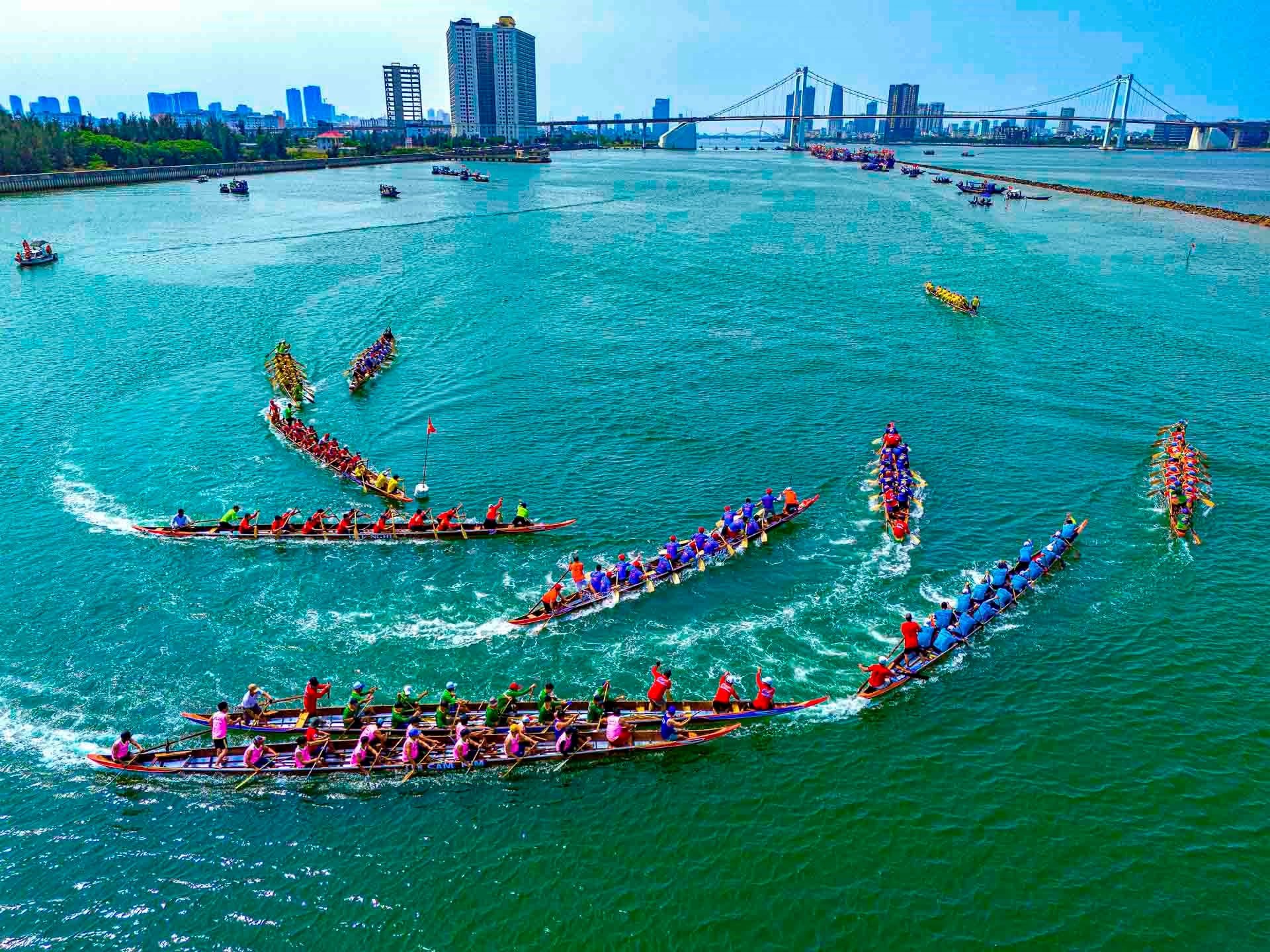
Second, supplement, develop, and gradually perfect the viewpoint on democracy and expand and promote the people's right to mastery.
- Economic field
The democratization process in the economic field is increasingly expanding, associated with the development of diverse forms of ownership, economic sectors, and types of enterprises. Our Party's viewpoint on the role of economic sectors through each period has developed and changed to suit specific conditions, always consistently and throughout implementing the multi-sector economic policy, operating according to the market mechanism, with State management, following the socialist orientation (11) . The diversity of ownership forms and economic sectors has made production relations more suitable to the development level of productive forces; it is an important premise for liberating productive forces, developing the socio-economy, improving and raising people's lives, and building the material foundation for socialism.
Along with the documents of the National Congresses from the 6th to the 13th tenures, our Party has issued many resolutions on economic development in general and on economic sectors in particular, focusing on Resolution No. 10-NQ/TW, dated June 3, 2017, of the 12th Central Executive Committee "On developing the private economy into an important driving force of the socialist-oriented market economy"; Resolution No. 11-NQ/TW, dated June 3, 2017, of the 12th Central Executive Committee "On perfecting the socialist-oriented market economic institution"; Resolution No. 20-NQ/TW, dated June 16, 2022, of the 13th Central Executive Committee "On continuing to innovate, develop and improve the efficiency of the collective economy in the new period".
To materialize that policy, the State has made efforts, actively and urgently built, amended and supplemented the economic legal system to meet the requirements of the innovation and international integration process, focusing on issues of institutional reform to promote economic development; eliminate regulations restricting competition and discrimination; perfect administrative procedures on enterprises in the direction of concentration, simplification, implementation of a public and transparent regime (12) ...; at the same time, clarifying the position, role and requirements of the state economy, collective economy, private economy, and economy with foreign investment capital (FDI).
- Political field
Article 6 of the 2013 Constitution affirms: “The people exercise state power through direct democracy and representative democracy through the National Assembly, People's Councils and other State agencies”. Accordingly, the people exercise direct democracy mainly through three forms: candidacy, election, and dismissal of National Assembly deputies and People's Council deputies; implementation of the Grassroots Democracy Regulations; and referendum.
Regarding the election of the National Assembly and People's Councils at all levels: The right to vote is one of the most basic methods of implementing direct democracy of the people, and it is also the basic political right of the people. Through elections, the people establish the state apparatus. Through this activity, the people choose people with sufficient virtue and talent to represent them, to participate in state management and social management on their behalf.
Through many elections of deputies to the National Assembly and People's Councils at all levels, it has been shown that: election regulations and rules have been constantly improved, creating a legal basis to ensure that people's power is better exercised in practice, contributing to building and perfecting the socialist rule of law state of the people, by the people, for the people; at the same time, strengthening people's trust in the Party, the State and the socialist regime in our country. Most recently, the form of direct democracy of the people in the election of deputies to the 14th and 15th National Assembly and deputies to People's Councils at all levels for the 2015-2020 and 2021-2026 terms has been well promoted, ensuring democracy, compliance with the law, and high voter participation rate (13) .
Regarding the right to vote when the State organizes a referendum: This is one of the forms of exercising the people's direct state power and is considered a typical form of direct democracy. This form has been recognized since the first Constitution of our State - the 1946 Constitution, but with the name of the right to "referendum". This is the form in which the people directly express their will in deciding important issues of the country. The right to vote is stipulated in Article 29 of the 2013 Constitution: "Citizens aged eighteen or older have the right to vote when the State organizes a referendum". And this right has been concretized by the Law on Referendum promulgated in 2015 (14) . The Law on Referendum has demonstrated the nature of the socialist rule of law State of Vietnam of the people, by the people, for the people; reflecting the ideological values of respecting the people, trusting the people, relying on the people, and the people being the root, which are clearly shown in the precious traditions of the Vietnamese people, in Ho Chi Minh's thought, and in the Party's guidelines and policies, and the State's policies and laws. Referendum is also a way for people to directly express their will and power on important issues of the country at each specific time.
People also participate in state management (contributing opinions; complaints, denunciations; democratic dialogue; discussion, criticism) and participate in policy and law making through the Law on Drafting Legal Documents (LDL). Projects and drafts of LDLs are organized to collect opinions from subjects directly affected by the documents, relevant agencies and organizations in many appropriate forms. The public posting of draft LDLs on information portals and websites to collect opinions from people and businesses is carried out relatively seriously. At the local level, when drafting resolutions of the People's Councils of provinces and cities, draft LDLs of the People's Councils and People's Committees of provinces and cities are sent to the provincial-level Vietnam Fatherland Front Committee for comments. Typically, the process of drafting and widely collecting opinions from all people on the draft of the 2013 Constitution has shown that this is truly a large-scale political activity; 28,000 seminars, conferences, and discussions were organized and 26 million comments on the content of the Constitution were received (15) .
Regarding supervision and dismissal of elected representatives: This is a form of direct implementation of state power by the people. The right to supervision is a natural right that the people - the owners of the country, the holders of state power - have the right to exercise over agencies, organizations and individuals who have been granted or delegated power by the owner of power. Through voter contact activities, elected representatives report on the activities of the elected agency to voters as well as grasp the thoughts, aspirations and recommendations of voters in order to promptly reflect them to state agencies and individuals with the authority to resolve them within the scope of their functions, tasks and powers. At the same time, the people also have the right to vote no confidence in elected representatives who are no longer worthy of the people's trust.
Regarding the participation of people's assessors in trials: As a form of exercising direct power of the people, the participation of people's assessors in trials demonstrates the State's respect for the people's mastery. Clause 1, Article 103 of the 2013 Constitution clearly stipulates: "The first-instance trial of the People's Court has the participation of people's assessors, except in cases of trials under summary procedures". With this provision, the people are directly involved in the exercise of judicial power of the People's Court. Bringing the voice of society into the trial process helps the trial to be accurate, objective, and consistent with the rights and aspirations of the people.
In the past 5 years, the implementation of direct democracy has also been demonstrated through direct dialogue between the people and leaders, heads of Party committees and authorities according to regulations, especially Regulation No. 11-QDi/TW, dated February 18, 2019, of the Politburo "On the responsibility of heads of Party committees in receiving people, having direct dialogue with people and handling people's reflections and recommendations". Accordingly, the work of receiving people and having dialogue with people has been carried out seriously, systematically and has been identified by Party committees and authorities as an important and regular task. The schedule for regular citizen reception by Party committee secretaries and People's Committee chairmen at all levels is publicly posted. In addition to regular public receptions, localities have paid attention to organizing public receptions and impromptu dialogues when there are outstanding, complicated, crowded, prolonged incidents or incidents that may cause serious consequences, affecting political security, order, and social safety, ensuring that "hot spots" do not occur at the grassroots level. According to statistics from 63 provinces and cities, from 2017 to 2021, the heads of provincial and municipal Party Committees directly under the Central Government have organized 1,144 dialogues with people and businesses (16) . Through public receptions and dialogues, many reflections and recommendations related to cadres and party members showing signs of degradation, "self-evolution", "self-transformation" have been received, directed for consideration and timely handling; at the same time, helping Party committees and authorities grasp the thoughts and aspirations of the people as well as issues that the people are concerned about, in order to have timely leadership and direction policies; create consensus among cadres, party members and people.
The people exercise power in the form of representative democracy, through representative bodies to exercise their power, specifically: the National Assembly, People's Councils at all levels, and other state agencies. According to Article 6 of the 2013 Constitution, not only the National Assembly and People's Councils, but the people can exercise their state power through other state agencies, such as the Government, ministries, ministerial-level agencies, People's Committees and agencies under People's Committees at all levels, People's Courts at all levels, etc. This is one of the new additions to the 2013 Constitution. In addition to the agencies prescribed in the Constitution as mentioned above, people of all walks of life can also exercise their mastery through the activities of supervision, social criticism, and contributions to Party building and government building of the Vietnam Fatherland Front and socio-political organizations, mass organizations assigned by the Party and the State - organizations representing the legitimate and legal rights and interests of union members, association members and the people (17) .
To promote the role of the State in realizing the law of increasing the role of the masses in history in the current conditions of Vietnam, the State must both perform well the basic functions and tasks of the State in general, and at the same time perform well the new roles and functions, new contents in the inherent roles and functions of the State according to the development requirements, set by objective conditions.
These are the main contents: First , the State plays a leading role in orienting, planning, and regulating socio-economic development, especially in the process of industrialization and modernization of the country according to the "shortened" development path; second , the State innovates its functions in relation to the market, from the position of directly managing and operating economic activities by administrative orders, to the position of creating a suitable environment to promote the positive impacts of the market mechanism, creating conditions for economic sectors to promote all resources and development potential in an environment of healthy competition, equality and increasingly deep international integration; third , for society, the State shifts to "management and administration" - accompanying and serving the people; Fourth , the State plays a leading role in promoting the process of democratic development and social democratization on the basis of respecting and promoting human rights and civil rights in Vietnam, promoting the fine traditional values of the nation and the basic and universal values of humanity; fifth , the State plays a leading role in developing science and technology and developing human resources, especially in the context of the Fourth Industrial Revolution taking place strongly; sixth , the State must fully perform its political, economic, social, defense, security and foreign affairs functions, in which the function of strong economic development is central, in order to achieve the goal of "shortened" development.
To implement the above contents, building a development-creating institution and promoting the creative development of the masses becomes the central task of the State. That institution must promote to the highest degree the people's mastery, the will, aspiration, creativity, and consensus of the entire nation for the cause of building and defending the country. Accordingly, the principle of the rule of law, the rule of law, and the principle of people's sovereignty in the organization and operation of the State serving the people, being responsible to the people; truly clean, strong, and honest are guaranteed; thereby, preventing and repelling corruption and manifestations of power degeneration.
Moreover, it is then that the State will effectively implement its relationship with the market and society: performing well the inherent functions in a modern market economy, at the same time using and promoting the strengths and limiting the negative aspects of the market mechanism, mobilizing and using all social resources effectively for the rapid and sustainable development of the country. Maintaining a highly effective national innovation and creativity system, citizens will be guaranteed equality in development opportunities, the voice of the people and society will be increasingly strong and have weight in participating in the work of the State./.
--------------------------------
(1) C. Marx and F. Engels: Complete Works , National Political Publishing House Truth, Hanoi, 1995, vol. 2, p. 141
(2) C. Marx and F. Engels: Ibid. , vol. 2, p. 123
(3) C. Marx and F. Engels: Ibid. , vol. 4, p. 424
(4) Complete Party Documents , National Political Publishing House, Hanoi, 2006, vol. 47, p. 362
(5) Complete Party Documents , op. cit ., vol. 47, p. 363
(6) Documents of the Party Congresses in the renovation period (Congresses VI, VII, VIII, IX), National Political Publishing House, Hanoi, 2005, p. 311
(7) Documents of the Party Congresses in the renovation period (Congresses VI, VII, VIII, IX), op. cit. , p. 460
(8) Documents of the 10th National Congress of Delegates , National Political Publishing House, Hanoi, 2006, p. 19
(9) Documents of the 12th National Congress of Delegates , Central Party Office, Hanoi, 2016, p. 69
(10) Documents of the 13th National Congress of Delegates, National Political Publishing House Truth, Hanoi, 2021, vol. I, pp. 27-28
(11) The 9th Congress in 2001 first raised the concept of "socialist-oriented market economy", identifying 6 economic sectors including: State economy; collective economy; individual and smallholder economy; private capitalist economy; state capitalist economy; foreign-invested economy. The 10th Congress in 2006 identified 5 economic sectors including: State economy; collective economy; private economy; state capitalist economy; foreign-invested economy. The 11th Congress in 2011 identified 4 economic sectors including: State economy; collective economy; private economy; foreign-invested economy . The 12th Congress in 2016 identified 4 economic sectors including: State economy; collective economy; private economy; foreign-invested economy . The 13th Congress in 2021 identified 4 economic sectors including: State economy; collective economy; private economy; foreign-invested economy, in which the state economy plays a leading role.
(12) Laws creating business environment: (1) Laws on investment: Law on Foreign Investment in Vietnam, Investment Law...; (2) Laws on business: Civil Code, Commercial Law, Law on Private Enterprises, Law on State-owned Enterprises...; (3) Labor law: Labor Code, Law on Vietnamese workers working abroad under contracts... Law on obligations, transactions and contracts: Civil Code, Commercial Law, Maritime Code, Labor Code, Business Law... Law on legal entities and enterprises: Securities Law, Real Estate Business Law, Lawyers Law, Cooperatives Law, Commercial Law, Investment Law, Competition Law... Law on property, land and ownership: Civil Code, Law on Organization of the National Assembly, Law on Organization of the Government, Land Law, Housing Law... Law on establishing and implementing procedures in the economic field: Criminal Procedure Code, Civil Procedure Code, Administrative Procedure Law... Law on international relations: Law on Signing, joining and implementing international treaties; Law on Nationality...
(13) On May 23, 2021, 99.6% of voters nationwide (nearly 70 million people) went to vote, exercised the rights and obligations of citizens, elected 499 deputies to the 15th National Assembly; 3,721 deputies to provincial People's Councils, 22,550 deputies to district People's Councils and 239,788 deputies to commune People's Councils for the 2021-2026 term. The election took place democratically, legally and safely in the context of the entire political system, the entire people and the entire army making efforts to prevent and combat the COVID-19 pandemic.
(14) Approved by the 13th National Assembly on November 25, 2015 at the 10th Session, effective from July 1, 2016.
(15) Tran Van Phong: “Contributing to refuting the opinion that “Vietnam must now transform its political system from totalitarianism to democracy”, quoted in the book Criticizing wrong views, protecting the ideological foundation, platform and policies of the Communist Party of Vietnam , National Political Publishing House Truth, Hanoi, 2017, p. 323
(16) According to the 5-year Report (of the Central Committee for Mass Mobilization) on the implementation of Decision No. 99-QD/TW, dated October 3, 2017 of the Secretariat, "Issuing a framework guideline for Party committees and Party organizations directly under the Central Committee to continue promoting the role of the people in the fight to prevent and repel degradation, "self-evolution", "self-transformation" internally”
(17) According to the General Report on State Management of Associations and Association Funds of the Ministry of Home Affairs, October 2022: By December 2021, the whole country had 93,425 associations. Of which, in terms of scope of operation: there are 571 associations with national and inter-provincial scope of operation, 92,854 associations with local scope of operation; in terms of nature: there are 27,719 mass associations assigned by the Party and State (Central level has 30 associations, provincial level has 905 associations, district level has 3,346 associations, commune level has 23,438 associations)
Source: https://tapchicongsan.org.vn/web/guest/chinh-tri-xay-dung-dang/-/2018/1081002/quan-diêm-cua-cac-nha-sang-lap-chu-nghia-mac---le-nin-ve-quan-chung-nhan-dan-voi-tu-cach-dong-luc-cua-phat-trien-lich-su-va-su-van-dung-cua-dang-communist-party-viet-nam.aspx


![[Photo] Bus station begins to get crowded welcoming people returning to the capital after 5 days of holiday](https://vphoto.vietnam.vn/thumb/1200x675/vietnam/resource/IMAGE/2025/5/4/c3b37b336a0a450a983a0b09188c2fe6)
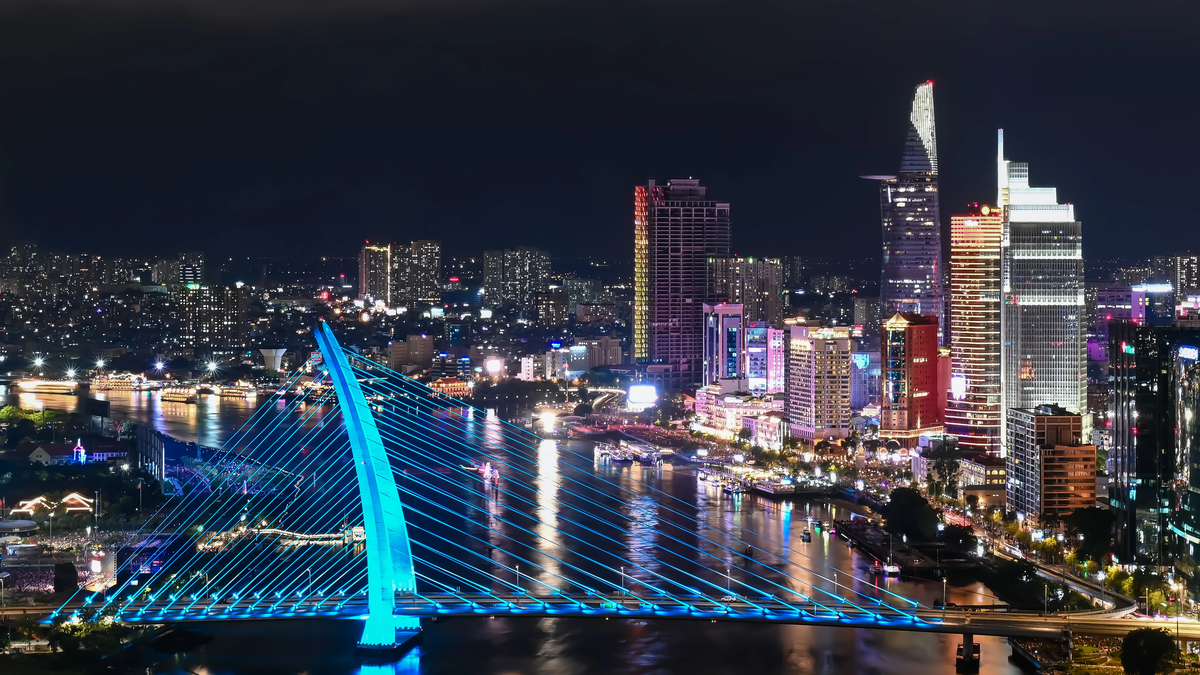

![[Photo] Vietnam shines at Paris International Fair 2025 with cultural and culinary colors](https://vphoto.vietnam.vn/thumb/1200x675/vietnam/resource/IMAGE/2025/5/4/74b16c2a197a42eb97597414009d4eb8)
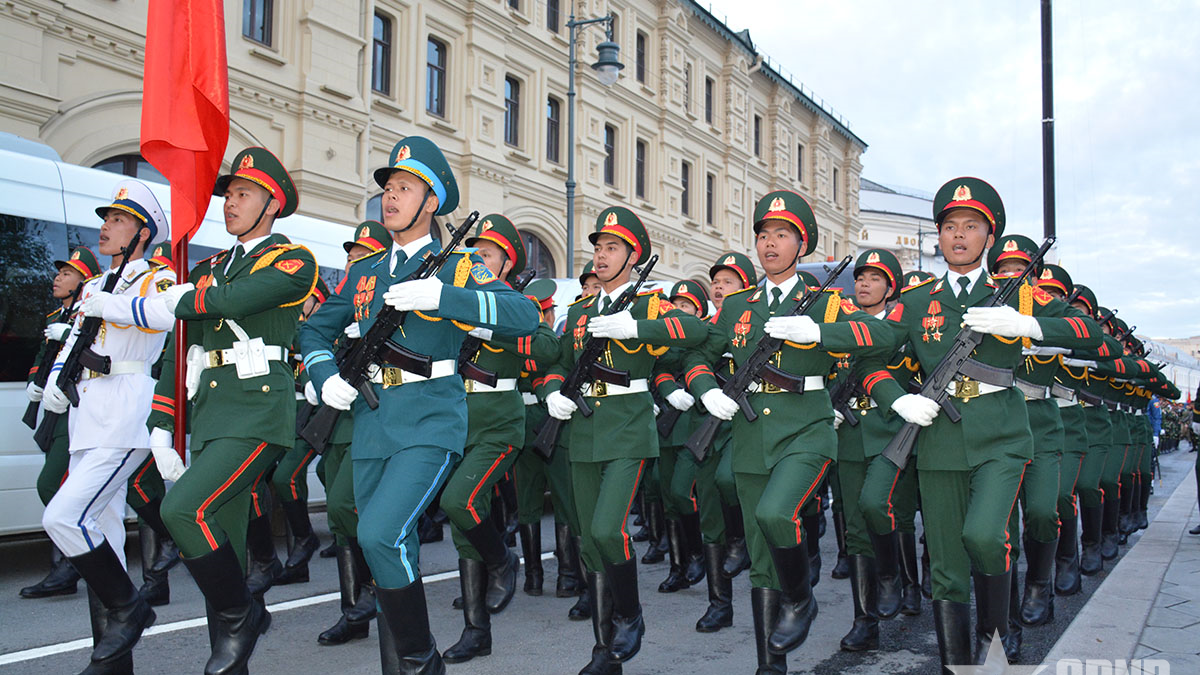
![[Photo] General Secretary To Lam receives Sri Lankan President Anura Kumara Dissanayaka](https://vphoto.vietnam.vn/thumb/1200x675/vietnam/resource/IMAGE/2025/5/4/75feee4ea0c14825819a8b7ad25518d8)
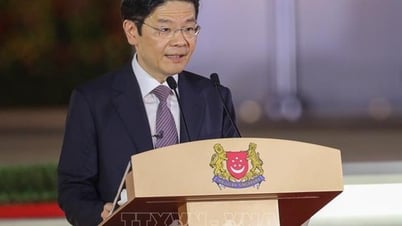

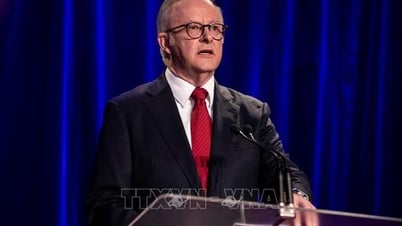
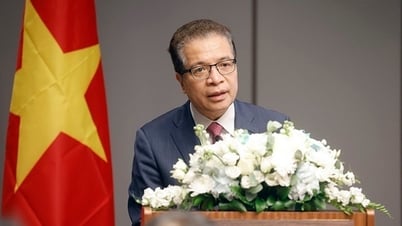
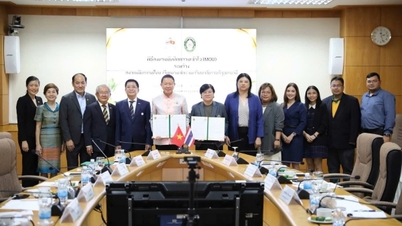
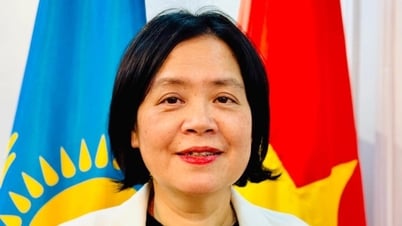





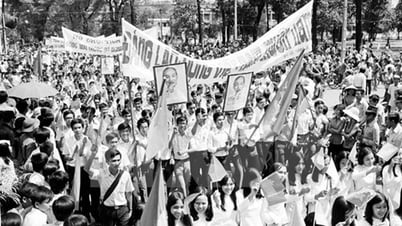

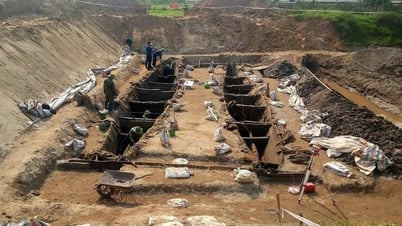







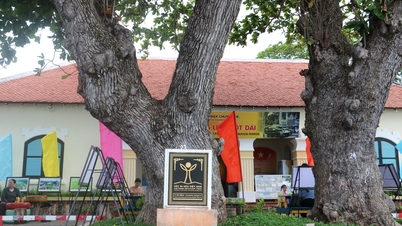

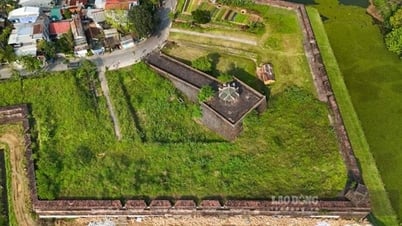

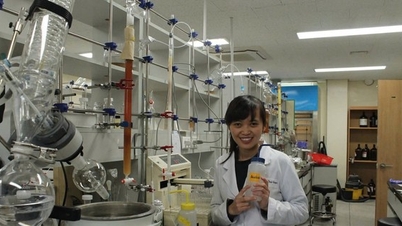


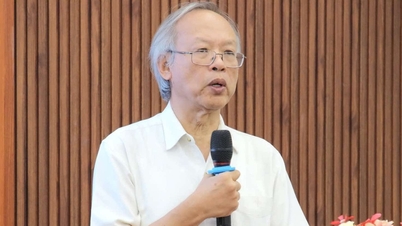

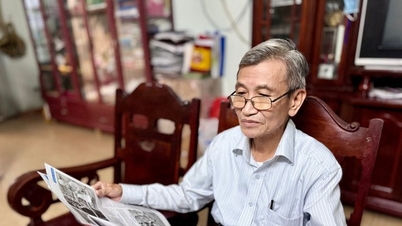
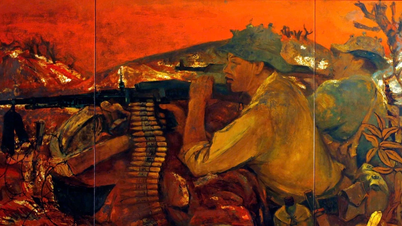



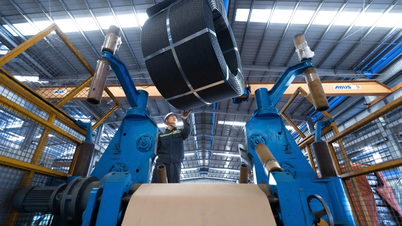

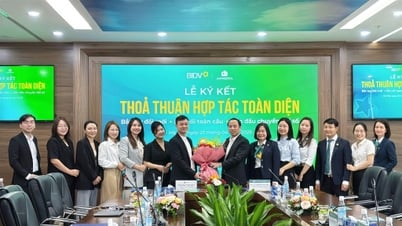

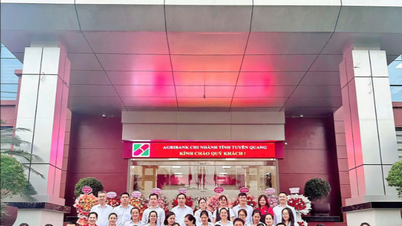


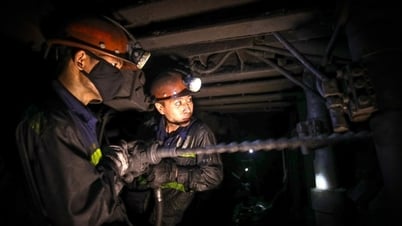




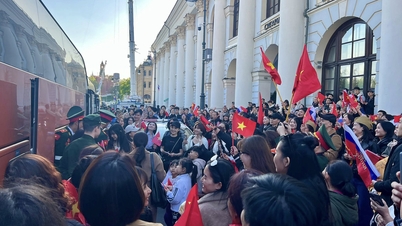


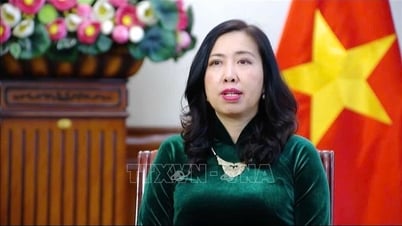




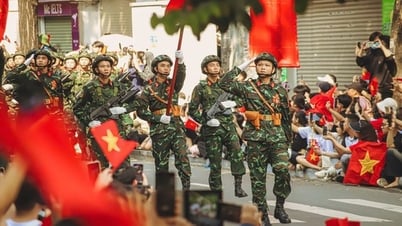







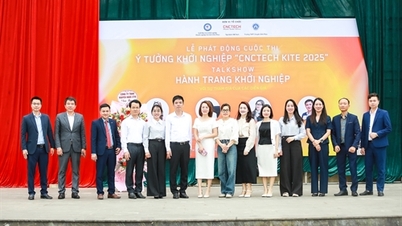



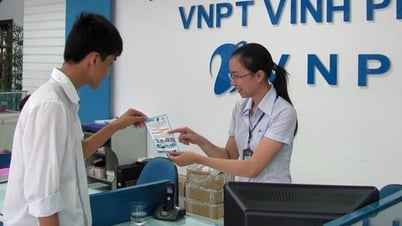
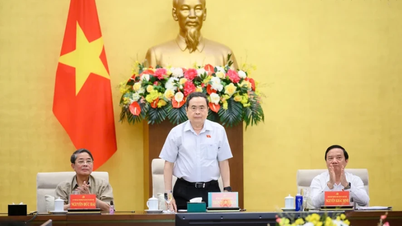
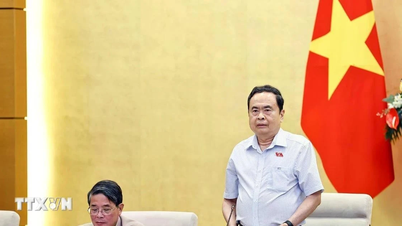






![[Video]. Building OCOP products based on local strengths](https://vphoto.vietnam.vn/thumb/402x226/vietnam/resource/IMAGE/2025/5/3/61677e8b3a364110b271e7b15ed91b3f)



Comment (0)